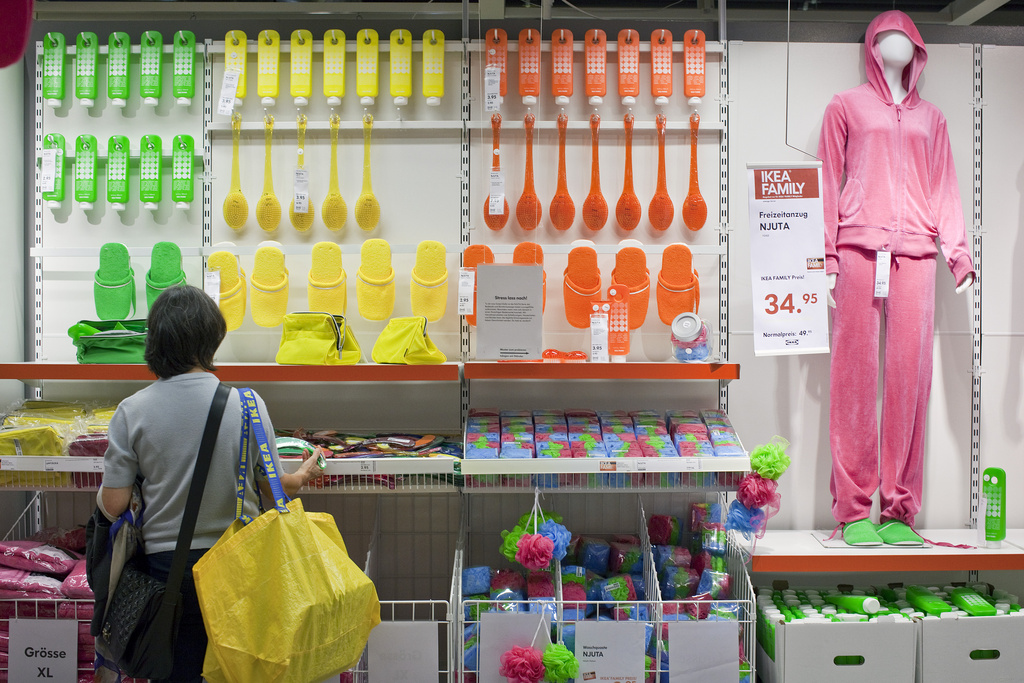Should rich shoppers pay more for the same product?

Loyalty card schemes enable retailers to track customers’ exact behaviour and offer personalised discounts with the aim of getting them to spend more. Such discounts could even be withheld from shoppers who regularly buy a lot. Unsurprisingly, consumer watchdogs are not happy.
You’re waiting in the supermarket queue to buy some olive oil, pasta and shampoo. So, coincidentally, is the person behind you. You’d expect the two baskets to cost the same, but don’t bet on it.
In September, Migros, one of Switzerland’s largest retailers, launched a pilot project in three stores (Zurich, Aare and Geneva), according to a report in the NNZ am SonntagExternal link. Customers with Cumulus loyalty cardsExternal link would receive “personalised discounts” – either at the till or on their app – based on their consumer behaviour.
The idea is to encourage people who only occasionally buy something, whether it’s a bar of chocolate or mouthwash, to buy it more often by giving them a discount on their next purchase. The NZZ am Sonntag said the system could result in a growth of revenue of around 8%.
“Initial experiences show this is greatly appreciated by our customers,” said Migros spokesman Luzi Weber.
These targeted offers would mean, however, that there would be fewer discounted items on shop shelves which could be enjoyed by everyone.
In addition, shoppers who regularly throw chocolate, say, in their trolley won’t be offered discounts on it. Ironically, loyal customers of a certain product will pay the full price.
Taken even further, algorithms could in theory even calculate how high a discount needs to be to make a certain customer take advantage of it. Whereas “5% off” might be enough to make me buy a bunch of bananas on my next trip to the supermarket, you might not get excited until it says “25%” off.
Dynamic prices
The trend towards so-called personal pricing is even greater online, but consumer watchdogs aren’t buying it.
Dynamic prices are nothing new in supermarkets, which have always adjusted prices from day to day depending on demand and approaching best-by dates. But these dynamic prices should apply to everybody, says Sara Stalder, director of the Foundation for Consumer ProtectionExternal link.
“Personalised prices on the other hand are problematic,” she told the NZZ am Sonntag. “If someone is classified as a ‘heavy shopper’, they could not only be charged higher prices but also be kept in the dark about any discounts. Both are unacceptable.”
If customers found out about this, they would find it hard to swallow, she said. “That could become a risk for the retailers’ reputation.”
Stalder called for vendors to have to clearly explain when they are offering individual prices based on personal data.

In compliance with the JTI standards
More: SWI swissinfo.ch certified by the Journalism Trust Initiative




You can find an overview of ongoing debates with our journalists here. Please join us!
If you want to start a conversation about a topic raised in this article or want to report factual errors, email us at english@swissinfo.ch.